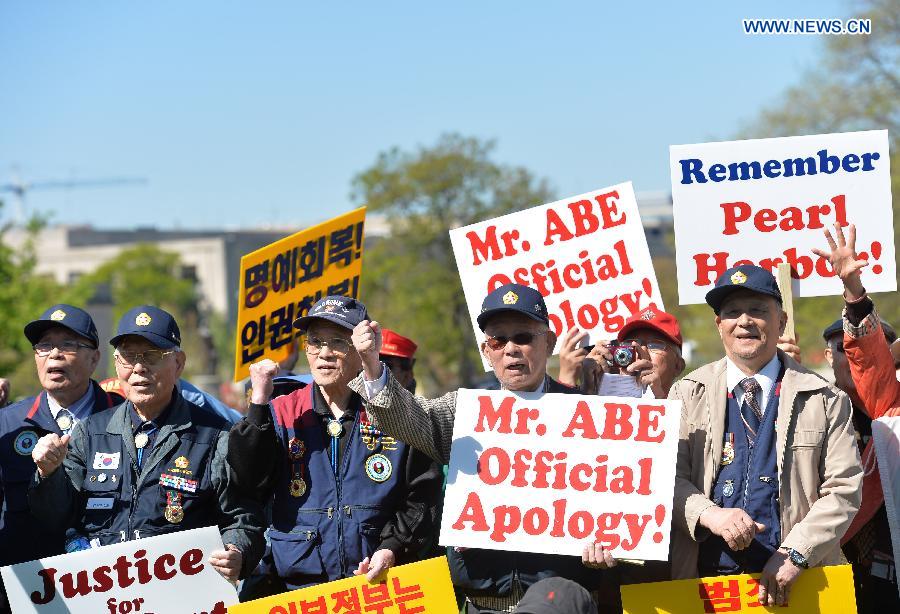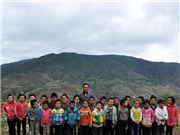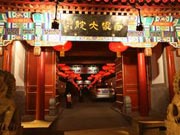

 |
| Dozens of protesters shout slogans in front of Capitol Hill as Japanese Prime Minister Shinzo Abe pays a visit to White House in Washington D.C., capital of the United States, April 28, 2015. Nearly 200 people held signs and shouted slogans in a protest against Abe's handling of history issues, demanding the Japanese leader to unequivocally apologize for his country's wartime crimes here on Tuesday. (Xinhua/Bao Dandan) |
SAN FRANCISCO, April 28 -- Hundreds of Chinese and Korean Americans took to the street on Tuesday in San Francisco, demanding an apology from visiting Japanese Prime Minister Shinzo Abe.
The demonstration started in the morning in front of the building housing the Japanese consulate in this U.S. west coast city and continued through early afternoon.
The event was organized by the Global Alliance for Preserving the History of Second World War (WWII) in Asia and Chinese American Association of Commerce in San Francisco, together with some other groups, including Korean American Chamber of Commerce in North California and Korea American Seniors Association of San Francisco.
Abe is in Washington D.C. on Tuesday and will be in San Francisco as part of his U.S. tour.
In a question and answer (Q&A) session during his speech on Monday at Harvard University, Abe labeled comfort women, a euphemism for sex slaves forced to serve Japanese imperial army during WWII, as "victims by human trafficking," a clear sign that he blamed the suffering of up to 400,000 women, mostly Koreans and Chinese, on local people other than the Japanese army.
Shouting "No Cover up of War Crimes!" the crowd was furious against Abe and his latest whitewash of Japanese war past.
"No Militarism, No Imperial Japan!" they demanded.
In a letter intended for Abe, presumably through the Japanese consulate, the organizers asked that the Japanese government acknowledge and accept war responsibilities and offer national apology through legislation.
They also demanded that Abe administration stop distort history, especially stopping to interfere with teaching materials and public education in regards to Japan's role as aggressor and oppressor of neighboring nations 70 years ago.
However, no officials from the Japanese consulate came out to receive the letter, and members of the organizing groups trying to approach the consulate were threatened with arrests.
Day|Week

 Tsinghua junior makes over 10,000 yuan a day by selling alumnae's used quilts
Tsinghua junior makes over 10,000 yuan a day by selling alumnae's used quilts Graduation photos of students from Zhongnan University
Graduation photos of students from Zhongnan University A school with only one teacher in deep mountains
A school with only one teacher in deep mountains Glimpse of cultural heritage "Xilankapu"
Glimpse of cultural heritage "Xilankapu" Homemade cured hams in SW China
Homemade cured hams in SW China Breathtaking buildings of W. Sichuan Plateau
Breathtaking buildings of W. Sichuan Plateau Graduation photos of "legal beauties"
Graduation photos of "legal beauties" Top 10 most expensive restaurants in Beijing in 2015
Top 10 most expensive restaurants in Beijing in 2015